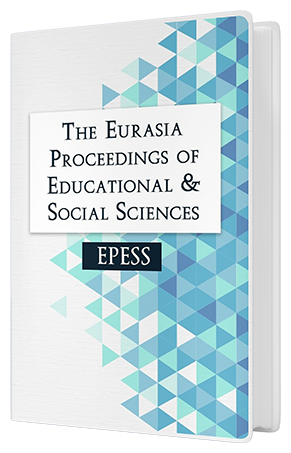Digital Learning Tools in Geography Education: A Systematic Literature Review
DOI:
https://doi.org/10.55549/epess.1413355Keywords:
Digital learning tools, Geography education, Systematic literature reviewAbstract
Digital learning tools not only enable the integration of technology in geography learning, but also bring a number of significant benefits to teaching methods and student understanding. However, it is difficult to find research that looks comprehensively and systematically at the use of digital learning tools in geography education. Therefore, this research aims to comprehensively examine the use of digital learning tools in Geography education. This research uses Systematic Literature Review (SLR) analysis which focuses on the types, impacts and obstacles in the use of digital learning tools in geography education. The data source in this research is the Scopus Database. This study analyzed13 articles from a total of 74 documents published in 2018–2023 which were screened by applying inclusion and exclusion criteria in three different rounds. This research shows that there are various types of digital learning tools used in geography education. In addition, the use of digital learning tools in geography education has had a positive impact. However, there were still a number of obstacles in implementing digital learning tools, such as limited technical resources, lack of additional training for teachers, as well as limited time, infrastructure and access, which need to be addressed immediately. The implication of these findings is the need to increase teacher training, improve educational technology infrastructure, and develop relevant curricula. In addition, the further research involving long-term evaluation and in-depth analysis of the impact of using digital learning tools will enrich understanding of the benefits of using technology in geography education.Downloads
Published
Issue
Section
License
Copyright (c) 2023 The Eurasia Proceedings of Educational and Social Sciences

This work is licensed under a Creative Commons Attribution-NonCommercial-ShareAlike 4.0 International License.
The articles may be used for research, teaching, and private study purposes. Any substantial or systematic reproduction, redistribution, reselling, loan, sub-licensing, systematic supply, or distribution in any form to anyone is expressly forbidden. Authors alone are responsible for the contents of their articles. The journal owns the copyright of the articles. The publisher shall not be liable for any loss, actions, claims, proceedings, demand, or costs or damages whatsoever or howsoever caused arising directly or indirectly in connection with or arising out of the use of the research material. All authors are requested to disclose any actual or potential conflict of interest including any financial, personal or other relationships with other people or organizations regarding the submitted work.




